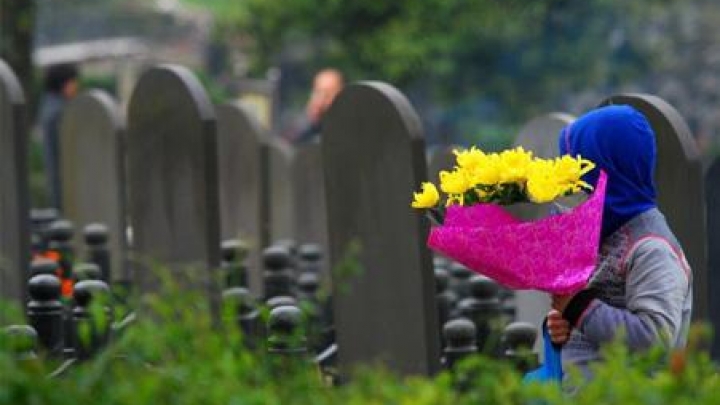East China city restricts tomb purchases for non-locals
As people gathered to sweep tombs on Tomb-sweeping Day, some may find it hard to get one.
Suzhou city in eastern China's Jiangsu province has banned the sale of tombs to people without a local hukou (household registration), unless there are "particular reasons."
![A total of 25,048 Red Army soldiers are buried in this cemetery in Bazhong, Sichuan province. The largest of its kind in China, the cemetery is a major historical and cultural site, which may have extra tourists during China's Tomb Sweeping Day (Qingming festival). [Photo: scol.com.cn].](https://chinaplus.cri.cn/images/201704/03/e6455b42-2e0d-9248-fb34-36f0e030889b.jpg)
A total of 25,048 Red Army soldiers are buried in this cemetery in Bazhong, Sichuan province. The largest of its kind in China, the cemetery is a major historical and cultural site, which may have extra tourists during China's Tomb Sweeping Day (Qingming festival). [Photo: scol.com.cn].
"Those who are not Suzhou citizens should get approval from the civil affairs authorities before they can buy a tomb here," said Zhang Jihong, vice head of the civil affairs bureau of Suzhou.
Due to an aging society and urbanization, some cemeteries are already full. Many of the tombs do not belong to Suzhou citizens. The civil affairs bureau estimates that more than 6 million people will go to Suzhou to sweep tombs for their deceased relatives.
Many of the visitors are from Shanghai where the price of a tomb is almost double that in Suzhou. Also, there were no public cemeteries in Shanghai more than 30 years ago, so many chose Suzhou instead.
The policy was widely discussed online.
"After the house purchase restrictions for the living, officials are turning their eyes to the dead," said Youming on Sina Weibo.
"People can not only speculate on houses but also on tombs," said netizen Xingzhiyin.
Zhang hopes that public can understand the policy well. Suzhou had a similar policy in 2004, but it was not well implemented. Now that there are few spaces left in the cemeteries, the policy has been reiterated.
"But we are not keeping all the non-locals outside," Zhang added. "For instance, those whose spouses are buried in Suzhou can still use the same grave after they die."
The civil affairs authorities are also considering the demands of young people who have obtained a Suzhou hukou and need tombs for their non-Suzhou parents.


